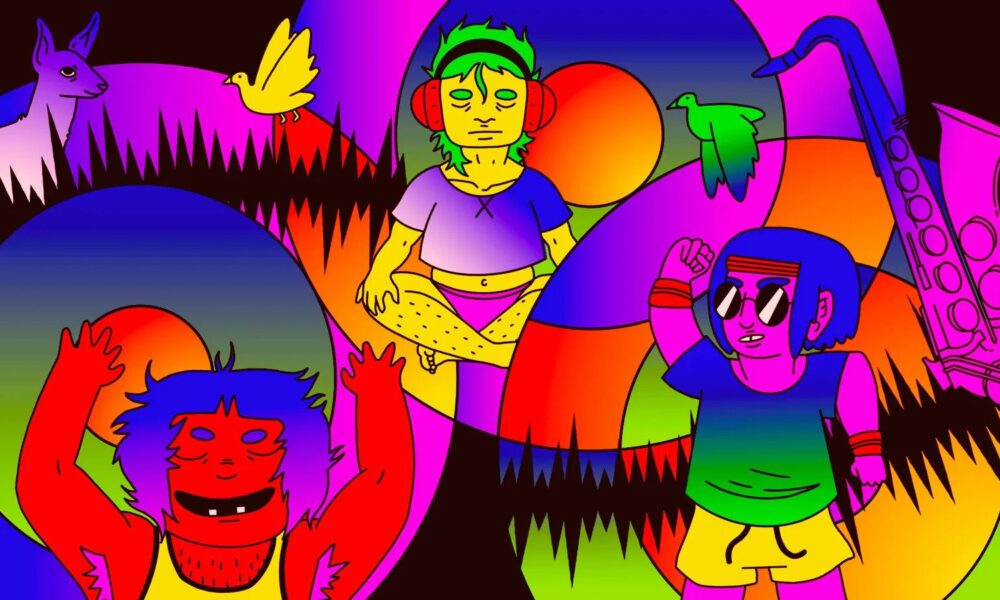I was not a podcast person until the world came to a halt. But upon frenzied shutdowns, curfews, and public health measures, I turned to the auditory for its unique pleasures. Walking in my suburban Ontarian neighbourhood, I could tune in to the experiences I had not grasped as an overinvolved high schooler. Bustling city life, chaotic and ephemeral relationships, underground arts communities surfaced quietly while my choices remained anonymous. Unsurveilled, I got to visualize, create, and live a new world. These are not podcasts to pass on.
The privacy of consuming a podcast is its greatest strength. Dance, theatre, and performance art rely on an audience, visual art and photography depend on the presence of the beholder and her object, and in its specific demands for time and space, reading enacts an eventful display. Any fellow reader miffed by the question, “What are you reading?” will understand. The contents of my listening lie solely between my phone and myself, with my headphones mediating. Within this intimate relationship of technology and self comes a reckoning. Will these private forms enter public life? If they should, whose interests will they actually serve? The margins do not need to cater to the centre.
In the outskirts of Toronto, where sidewalks meet driveways that sprawl onto single-family homes, where social liberalism and fiscal conservatism emerge as rapt dance partners, where whiteness and heteronormativity more easily tangle, multiply, and destroy other life-worlds, this form of unspectacular consumption would rehearse a freer future. I feel nostalgic for the lives I have not yet lived.
These walks became an escape. At most, four hours a day—but never under one and a half and always audibly accompanied. I eagerly await the opportunity to leave the house. My feet soften on the synthetic terrain, floating above over-manicured lawns, toxins ravaging each other to appear green. The knots in my back come undone, the crick in my neck dissipates, my head unclouds itself from the fear, the hate, and the force that is now a distant memory. Quiet as it is kept, an episode ends and I queue up what is to follow. I hear queers of colour chatting about sex and culture, gossiping about the show’s producer; radical feminists talking about surviving red states, affirming why they choose to fight; Black queer and trans people discussing HIV-AIDS, the lived “rainbow,” and the imperative of love in South Africa. Passing a pedestrian who does not hear the lewd joke a host has made, a bitchy remark from a guest, a cutting quip from a caller, I relish the freedom to chortle innocently. In their eyes, I might be listening to a darkly-funny true-crime podcast or on a call with an up-and-coming friend in standup. In a way they might be right. This allows my days to pass.
The walk to campus does not take long enough for me to properly listen. The rush and unsettled horizon of university keeps my brain otherwise occupied. There are texts to read, essays to write, and events to attend. These times develop as ones in which disclosures happen and confessions occur as brief words uttered aloud in the cold, where the orange sign of a 24-hour A&Wflickers, daring us to admit to one another, to pull each other closer. Private becomes public. Definitions hop off the page and into the atmosphere. I strive to dream, to inherit, and to practice what I have heard.
Some of my podcasts do not come back. The hosts have reintegrated themselves into community work, lost funding from the state and, needing to crowd-source, have disappeared from the apps. They give us what we need, and they deserve to recharge. I cannot say how much they have provided me. Their hope may be found in my bones. Relistening now allows me to reclaim what we have lost. I am overjoyed, I am breathing unburdened, and this time, if you do not mind, I will keep this experience to myself.









